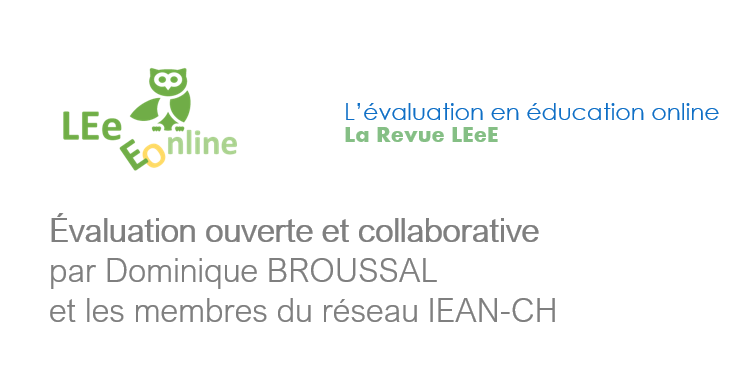Building cultures in favor of positive assessments for the future
Collaboration around the production of texts with an institutionalizing aim
DOI:
https://doi.org/10.48325/rleee.008.02Keywords:
building positive assessment futures, professional collaboration, community of practice, assessment culturesAbstract
This article presents theoretical background of the theme dealt with in issue 8 of the Revue LEeE, when the political challenge is to produce texts with an institutionalizing aim to encourage transformation of assessment culture in the classes and schools of French-speaking Switzerland and Ticino. To this end, four conceptual axes are developed: (1) a general perspective of "positive assessments for the future" aimed at encompassing the various proposals adopted by the cantons of French-speaking Switzerland and Ticino. Emphasis is placed on assessment as a potential resource for long-term identity trajectories in the face of constantly changing contemporary contexts. (2) Assessment cultures, with the presentation of three contrasting exploitations in the scientific literature (3) The negotiation of assessment cultures including the collaboration of actors who are directly involved. Again, different conceptions of collaboration are presented, opening to a more global and systemic approach with Wenger's social theory of learning around "communities" and "landscapes of practice". (4) The role of the production of documents with an institutionalizing aim, with the hypothesis of the negotiations of meaning which contribute to it and the learning which results from it. Generally speaking, the aim of this article is to set out different conceptual frameworks that may guide, in part, the reading of the empirical accounts presented in the "cantonal" articles on the one hand, and on the other hand to set out some initial theoretical foundations for the concluding syntheses.

Downloads
Published
Versions
- 05.03.2024 (2)
- 14.07.2023 (1)
How to Cite
Issue
Section
License
Copyright (c) 2024 Lucie Mottier Lopez

This work is licensed under a Creative Commons Attribution-NonCommercial 4.0 International License.


